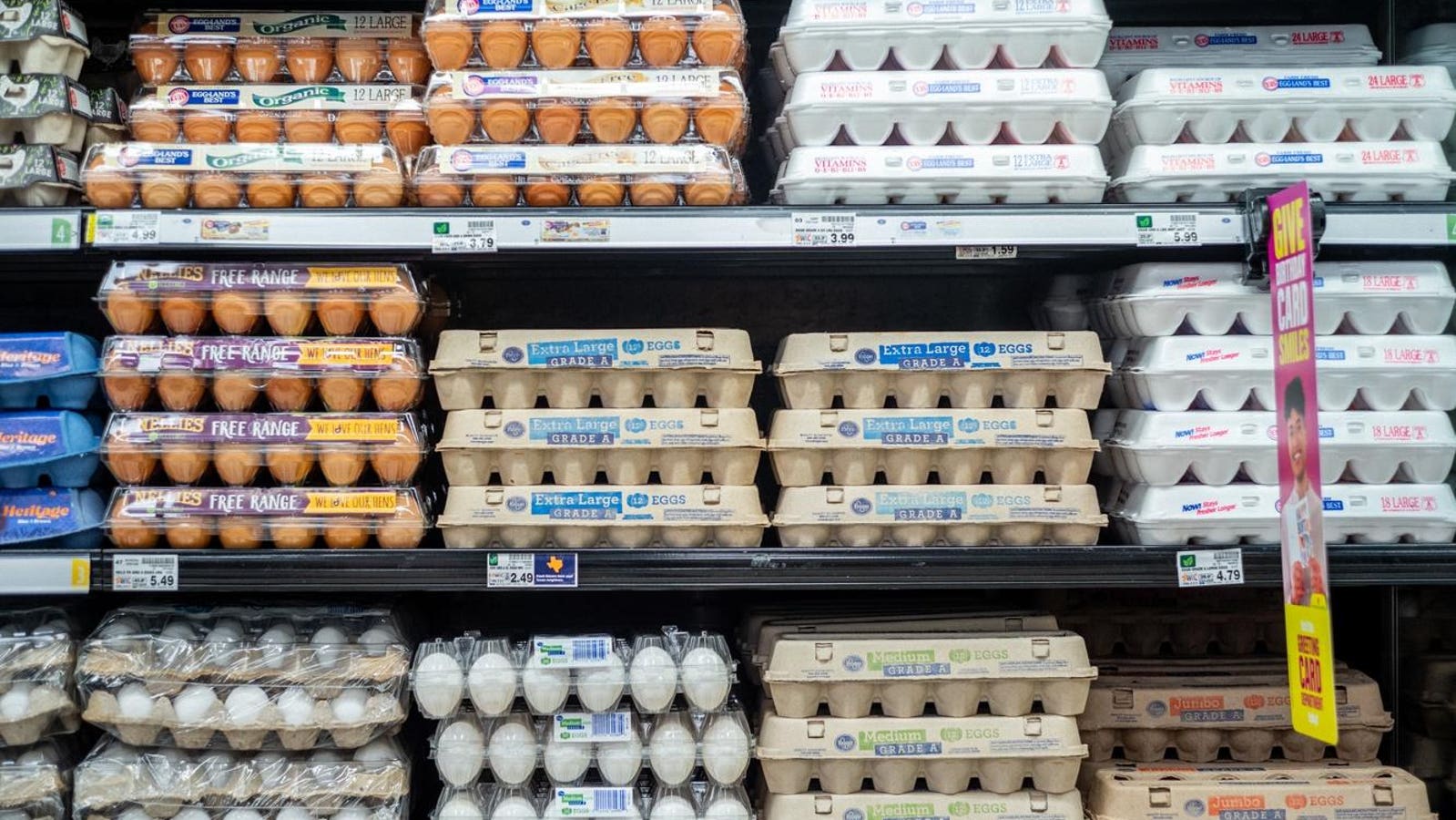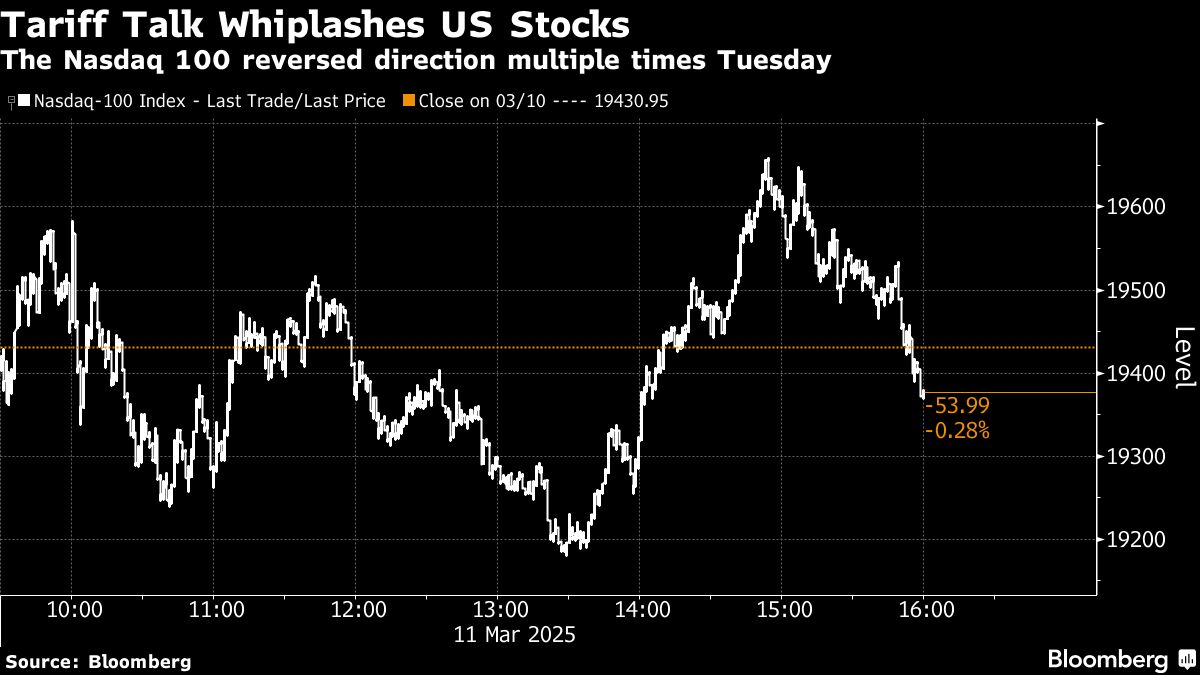Topline
President Donald Trump’s tariffs and trade policy changes are expected to drive price increases across an array of consumer goods when they go into effect this week, from large purchases like cars and lumber to everyday groceries including meat and fruit, as well as products from popular online overseas retailers Temu and Shein.
The president’s tariffs against China, Mexico and Canada eliminated a trade exemption used by … [+]
Key Facts
Experts estimate the average price of new cars will increase by $3,000, while the price tag for other vehicles, including full-sized trucks, may rise by as much as $10,000, since about 22% of all vehicles sold in the U.S. are imported from Canada and Mexico, according to S&P Global, and several U.S.-based automakers like General Motors and Ford rely on Canadian and Mexican companies for parts.
Patrick De Haan, GasBuddy’s head of petroleum analysis, told CBS he expects the price of gas to increase up to 40 cents a gallon within days of tariffs impacting Canada and Mexico, as Canada sends about 20% of the oil used by Americans.
The Forest Resources Association, a lumber trade group, suggests a 25% tariff on Canadian imports would result in a “supply shock” in the U.S. and cause the price of lumber to increase up to over $600 per thousand board feet, up from just below $590.
Get Forbes Breaking News Text Alerts: We’re launching text message alerts so you’ll always know the biggest stories shaping the day’s headlines. Text “Alerts” to (201) 335-0739 or sign up here.
What Other Goods Could Be Impacted?
U.S.-based companies will likely raise prices on products as they pay taxes on imported foreign goods, though it’s not immediately clear which prices would be directly affected.
- The National Association of Home Builders called on Trump to exempt building materials from the tariffs, which the trade group warned would have a “harmful effect” on housing affordability and raise the prices of new homes.
- Canada is the largest exporter of meat to the U.S., accounting for nearly $14 billion in goods in 2023. About 63.2% of agricultural imports from Canada in 2022 consisted of beef, pork and other animal products like grains, feeds, and oilseeds, according to U.S. Department of Agriculture data.
- The U.S. relies heavily on Mexico and Canada for imports of fresh vegetables, as they accounted for 77% and 11% of all imports in 2020, respectively, according to the USDA.
- The U.S. imported about $45 billion in agricultural products from Mexico in 2023, including strawberries, raspberries and tomatoes, the USDA reported, while avocados represented about 6% of all agricultural imports from Mexico.
- Tequila represents about 10% of agricultural imports from Mexico, while 81% of all imported beer in the U.S.—accounting for about 18% of total beer consumed—comes from Mexico, where Pacifico, Corona and top-selling Modelo are brewed, according to the USDA and Commerce Department.
- The Distilled Spirits Council of the U.S. said in a joint statement with Canadian trade groups the prices of bourbon, Tennessee whiskey and Canadian Whisky would likely increase as a result of the tariffs.
- About 37% of all footwear imports—totaling $9.5 billion—to the U.S. in 2023 came from China, according to the U.S. International Trade Commission, while Mexico represented about 3%.
- About 80% of toys imported to the U.S. come from China, the Toy Association trade group told Forbes. Mattel executives suggested during the company’s fourth-quarter earnings call the prices of toys—including Mattel’s Barbie and Hot Wheels brands—would be raised in response to tariffs on China, where Mattel sources about 40% of its goods.
- The Canadian government has warned the tariffs could raise the prices of dairy products like milk, cheese, and eggs, as well as winter coats, glassware and appliances like ovens, stoves and microwaves.
How Will Temu, Shein And Amazon Be Impacted By The Tariffs?
Trump’s tariffs target the “de minimis” trade provision, which allows companies to send packages valued at $800 or less to the U.S. without paying duties or certain taxes. The U.S. processed more than 1.3 billion de minimis shipments in 2024, and the number of shipments has gradually increased since 2015 (139 million), according to the U.S. Customs and Border Protection Agency. The Biden administration proposed changes to the provision in September 2024, reportedly citing its “overuse and abuse” by low-cost retailers like Temu, Alibaba’s AliExpress and Shein. Haul, Amazon’s low-cost retailer that relies on third-party sellers in China, also reportedly relies on the exemption. Amid a threat of the provision being eliminated, Temu and Shein have moved to open distribution centers and supply chains in the U.S., allowing both companies to continue avoiding paying additional fees like duties or taxes, according to Bloomberg.
What Impact Will The Tariffs Have On Taxes?
The center-right Tax Foundation estimates tariffs on Canada, Mexico and China would cost each U.S. household more than $830 in additional taxes in 2025. Consumers in the U.S. would be required to pay more in sales tax as companies—which pay taxes on imported foreign goods—raise their prices.
When Will Trump’s Tariffs Take Effect?
A 10% tariff on Chinese goods took effect Tuesday, though 25% tariffs on Canadian and Mexican imports were delayed until March. Trump and Mexican President Claudia Sheinbaum said Monday that tariffs levied on Mexican imports would be delayed as the Trump administration negotiates with Mexican officials.
Key Background
Trump has signaled tariffs on Canada, China and Mexico for months, despite opposition from some economists and business leaders. U.S. Chamber of Commerce vice president John Murphy called the tariffs “unprecedented” and said they would “raise prices for American families and upend supply chains.” Jay Timmons, CEO of the National Association of Manufacturers, said the “ripple effects” of Trump’s tariffs would “be severe” for smaller manufacturers in the U.S. and “[undermine]
our ability to sell our products at a competitive price and putting American Jobs at risk.” Canadian and Chinese media have criticized Trump’s tariffs, including the Toronto Star calling on Canadians to “band together despite our differences” and understand “no one has ever won by appeasing a bully.” Trump levied higher tariffs on China in his first term, sparking a trade war with the country before reaching a trade agreement in 2019. In the lead-up to his election, Trump proposed tariffs between 10% and 20% on Mexican and Canadian goods before upping the rate to 25% in November.


